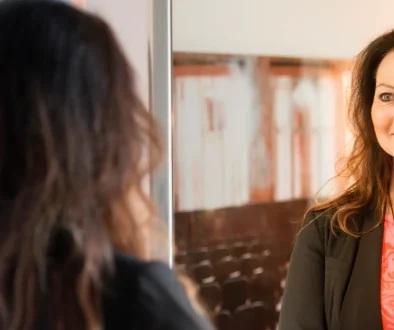Are We Raising the Cyborgs of Tomorrow
There’s no doubt that technology is a driving force in the lives of modern children. It’s inescapable. The internet brings the entirety of human knowledge to their fingertips. Schools are rapidly integrating touch screen tablet computers into the classroom. Soon it will be commonplace for kids to be shuttled around by autonomous vehicles that drive themselves. AI, even in its infancy, is becoming ubiquitous. Children today are growing up at a time when technology is advancing at an astounding rate, with the rate of change itself accelerating exponentially.
So what effect is this likely to have on their lives in the future?
It’s hard to make sweeping predictions about such a complex system but there are some trends visible today that we can project into the future. Personal technology is getting smaller all the time while simultaneously growing more powerful. Today’s pocket-sized cell phones have more computing power than the room-sized computers of the 50s and 60. Cameras and computers are now small enough to be mounted in eyeglasses. It’s not unreasonable to imagine that in another ten years or so those eyeglasses will be replaced by digital, internet-connected contact lenses. And ten years after that? Look for technology implanted directly into our bodies.
Today’s kids my be the first generation of young adults to link directly to each other and to computer networks through embedded technology. It’s entirely likely they could, with a word, or conceivably a thought take a picture through their eyes and upload it to their social feed. Facebook features live video today. Imagine when that live video is a stream of what your friends are seeing directly through their eyes.
This means today’s kids will be connected to each other in unprecedented ways. Consider the ultimate application of the live video scenario I just detailed. One person could transmit live video directly off their optic nerve. This sensory information could be transmitted through the internet and displayed to other people’s minds as if they were seeing through their friend’s eyes. Add to that transmitted audio and your friends can experience what you’re experiencing almost as if they’re there with you.
Implanted technology will change more than just interpersonal connectivity. By the time this technology is widely adopted AI should be significantly more advanced. In the future today’s kids may carry advanced versions of Siri inside their heads. If brain-mapping is sufficiently developed by then a direct connection between thought and technology would be possible. It’s conceivable today’s kids could ask Siri for help without opening their mouths. Have a question? Siri would feed them the answer straight into their mind without them ever having to ask. They could offload mental tasks directly into their wetware computer and get the results back instantly. It would be like having a second, more powerful brain inside their heads to complement the one they were born with.
Pair this implanted, connected AI with embedded cameras and audio recording technology and today’s kids in the future could record absolutely everything that ever happens to them, and have Siri parse all of it into discrete “memories” that can be accessed at any time. Imagine being able to “remember” every single moment of your life perfectly.
And all of this embedded technology would be internet connected. Need to travel? Call an autonomous vehicle to your location with a thought. Want to know where your kids are? Tap into their visual feed and see information about their GPS location laid directly over your visual field. Want to hear your favorite album? Stream it to your auditory nerve. You could hear it as if you were standing in front of the band. Can’t remember something important? Let Siri search for the virtual memory in your embedded storage and pull it directly into your mind.
So are we raising tomorrow’s cyborgs? Probably, yes. Technology will change today’s kids lives in ways we can’t begin to fathom but it’s almost certain that it will fuse with their basic biology to enhance everything that makes us human. Our kids are facing a very bright, technological future.



